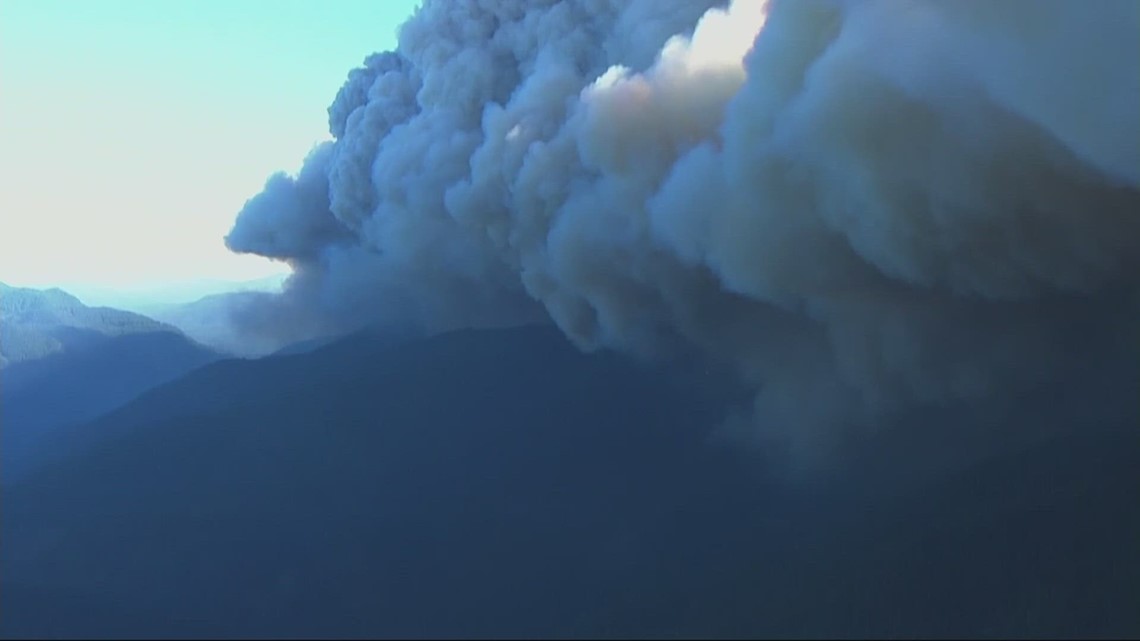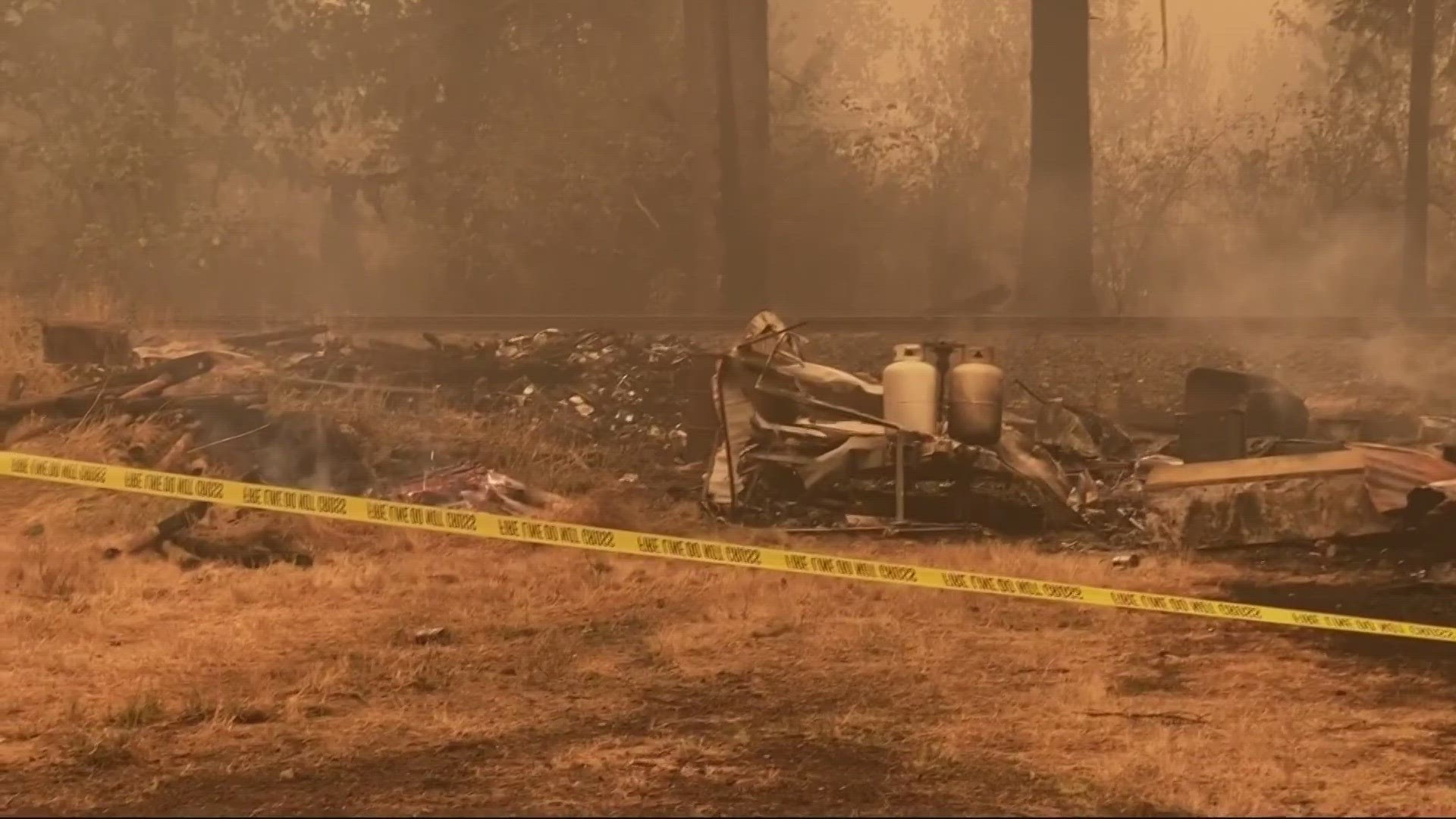PORTLAND, Ore. — Pacific Power attorneys are making their case that blame for some of the most destructive Oregon wildfires around Labor Day 2020 should fall on climate change and the spread of other wildfires, rather than the utility company's electrical equipment.
The defense is continuing to call its witnesses in a landmark jury trial over wildfire responsibility. A group of 17 plaintiffs is seeking $1.6 billion in a class action lawsuit against PacifiCorp, Pacific Power's parent company, alleging the company caused fires by not turning off electricity in areas that were at extreme fire risk.
Wildfire investigations are still ongoing, so the Multnomah County jury is tasked with determining who — or what — is at fault, and if any damages should be paid out.
On Wednesday, Pacific Power called a top company executive, a climatology expert, a specialist in utility company best practices, and a lineman to provide testimony.


LeRoy Westerling, providing testimony about climate change and wildfire research, answered defense attorneys' questions intended to show that climate unpredictability was to blame.
"The 2020 Labor Day wildfires were an unprecedented example of this trend across a broader region than had been seen in the observational record," Westerling said.
At the heart of the lawsuit is a discussion about public safety power shutoffs — when a power company turns off power lines as a precaution before high winds sweep through an area.
Allen Berreth, Pacific Power’s Vice President of Transmission and Distribution, testified that the company didn’t order any power shutoffs in 2020 because it lacked the data.
"We weren’t getting enough information from Western Weather [Group] in regards to PSPS thresholds being exceeded in any specific area of our service territories," Berreth said.
Berreth and Pacific Power argued that power shutoffs are a tool of a last resort, as turning off electricity can also be dangerous for people who rely on power.
"Looking at that risk of not having energy, not having power in a community can increase the risk versus the risk we’re trying to avoid from a potential wildfire," Berreth said.
However, attorneys for the plaintiffs pressed Berreth on the company’s responsibility, including how much it spent on wildfire mitigation and if Pacific Power made the right call.
"I’m not aware of any specific evaluation was done after the fact to determine where across our service area if the thresholds were exceeded," Berreth said, in response to cross-examination.
Plaintiff’s attorneys have alleged that Pacific Power utility lines ignited some of the largest wildfires in 2020, while defense attorneys said the power company can only do so much to prevent severe weather.
"We didn’t get the rainfall in autumn that would shut down the fire season," Westerling testified.
The trial started in April and will continue into June. Previous witnesses have testified about a call between Oregon government officials and power companies before the wildfires exploded.
The sides have also used witness testimony to explain how they believe the major wildfires spread.

